“I have never been to Palestine. I don’t have citizenship there; I don’t have citizenship here. I’m like a refugee free agent.”
In the land of hopes and dreams – the United States – Mo, an asylum seeker, has only one desire: to be granted the U.S citizenship and care for his family. But as a floating immigrant, his family’s journey is painfully impeded by state bureacracy. In one way or another, Netflix’s new series, Mo, painstakingly mirrors the stories of millions of asylum seekers struggling to make a home in the diaspora.
Directed by Solvan “Slick” Naim, the Netflix show, which premiered on 24 August, follows Mo Najjar, played by Mohamed Amer, a Palestinian-American Muslim born in Kuwait, whose family fled to the U.S during the plight of the first Gulf War in the early 1990s. The war sent the Najjar family to Alief, a suburb in Houston, Texas to live, undocumented, as they wait for their aslyum request to be heard – for 22 years and counting.
Over the eight half-hour episodes, the series, billed as a semi-autobiographical dramedy, seeps into the trials and tribulations in Mo’s life – bridging humor and tragedy together. Much of the show is loosely drawn from Amer’s personal experiences growing up in Houston.
The series is co-created by Amer and Egyptian-American Ramy Youssef, known from his show Ramy, a dramedy about a first-generation Egyptian-American Muslim living in New Jersey. A stand-up comedian like Youssef, Amer has starred in Netflix comedy specials Mo Amer: The Vagabond, Mohammed in Texas, and Allah Made Me Funny alongside Azhar Usma and Bryant ‘Preacher’ Moss.
The story: on being at home but not at home
The show’s first episode, Hamoodi, drops us into Mo’s life in Texas as an affable hustler, juggling jobs that will look past his lack of an American citizenship. Minutes in, Mo is fired from his job at an electronics store; his manager, played by Egyptian comedian and author Bassem Youssef, who would rather be safe than sorry, fears a raid from the Immigration and Customs Enforcement (ICE). Mo is forced to find creative ways to make money, leaning on his side hustle of selling knock-off Yeezy sneakers and fake Rolex watches.
Not long after, a trip to the grocery store puts him at the forefront of a traumatic event: a gunman shoots him in the arm. Though the incident bears great affliction, the quick-witted Mo slips his slick one-liners that act as comic relief in the show. Because, although there is no escape from tragedy, there is still room to breathe.
Though the shot is only a graze, his life as an uninsured and undocumented refugee forces him to to skip a trip to the hospital, and he resorts to a cheap stitch at a tattoo parlor instead. There, he is introduced to a potent mix of codeine and syrup to ease the pain, and it is not long before Mo gets addicted: one of the many demons that he battles throughout the series.
Mo’s upbringing in Houston impacted his life, and throughout the season, he seamlessly flows from English to Arabic to Spanish: flitting between all three worlds with the confidence of a hustler. He lives two lives: a life that loves his city, the food, and listens to its local rappers, and a life as an immigrant: presenting a one-of-a-kind combination to Netflix’s screens.
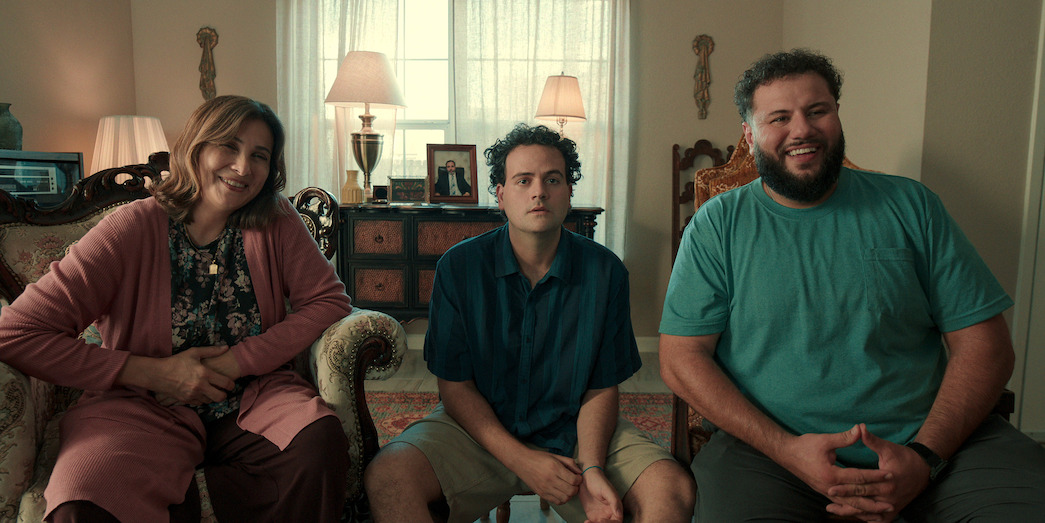
He is grounded in his culture – his Palestinian hertiage is a impactful factor in the show. He loves his mom’s hand-pressed olive oil, he sleeps in none other than the Arab tiger-print blankets, and his mother interchangeably calls him Mama (Mom) and Baba (Dad), words only known to those familiar with Arab dialects.
On their quest of getting their case heard, the Najjars originally had a flightly Palestinian lawyer, Rhonda Moddad(Cynthia Yelle), whose incompetence got her replaced with Lizzie Horowitz, played by Lee Eddy. Horowitz, who is Jewish, is a perfectly competent lawyer, but is ultimately undermined by Moddad in court for not being Palestinian – her reputation is deemed ironic because of her last name and the case she is defending.
Yet, Horowitz has managed care for the Najjars far more than Moddad’s efforts ever did – which goes to show that you don’t need to be an Arab, or a Palestinian, to support and sympathize with cases of injustice.
Mo is the kind of series that humors its way through tragedy. “It’s a branding issue” is Mo’s response when people confuse Palestine for a town in Houston, Pakistan, or even Israel. It is masterful in the way it makes the political personal – evident when Mo infers that his nephew should be good at throwing rocks, or through his mother’s olive oil brand that she calls ‘1947’ to mark the year before the Palestinian Nakba.
Although the ending of the last episode was left open, it does make viewer’s wonder if there will be a second season of Mo.
The watching experience: the personal is the political
The show does a remarkable job at being specific and universal at the same time – it is a story of struggle, family affairs, and finding your place in the world. But it is also a story of perseverance and preserving heritage. It will resonate with the millions of people who have been displaced and forced to leave their homes, but it will also be an eye-opening watch to those who have not.
The show brings an authentic Palestinian experience, which is largely due to most of` the character’s Arab backgrounds; Amer is a Palestinian-American, Elba is an Egyptian-American, and Besesio is Palestinian-Jordanian.
It is not aggressively political, but it does sprinkle certain references throughout the season that only those who understand the Palestinian cause will understand – which begs the question of how the international audience will understand the hidden references in the show?
If someone is a fan of the show Ramy, they will probably also enjoy Mo because they bear great similarities. However, if dramedies are not your preferred genre, Mo will likely stand as too casual to be a heavy drama, and too serious to be a light comedy for them – an uncommon mix that may not be for everyone.
A point that was critiqued by many viewers is is the drug plot line in Mo’s story. However, in my opinion, I think the drug plot line was necessary, because it shows the layers of turmoil that his family, and evidently he, goes through living in a country that has not been welcoming to them.
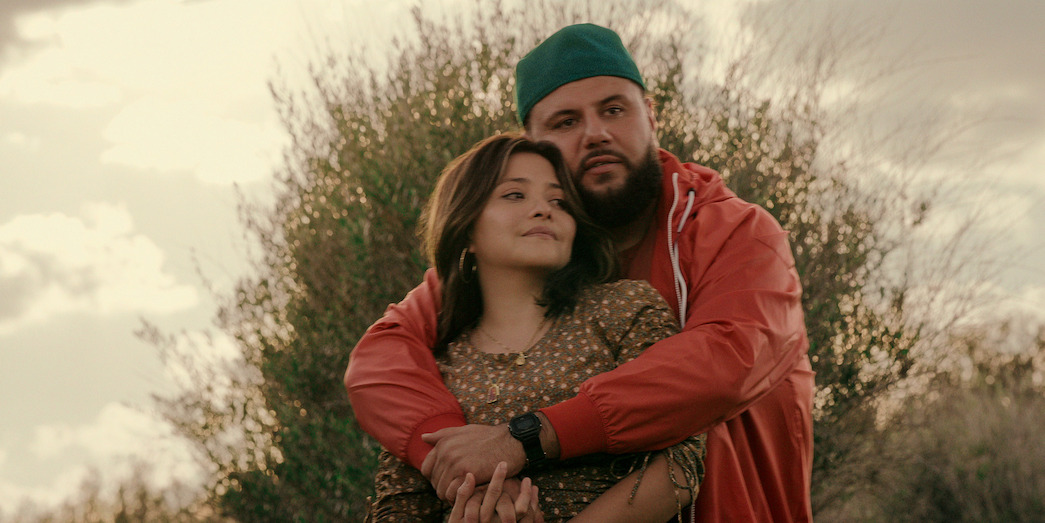
Though the message of the show was impactful, the flow of the episodes often felt slow. Each episode approximately ranges from 25 to 30 minutes, however, there are some instances where it felt like the director was just filling time gaps. This was particularly evident in the sixth and last episodes – where there were long and irrelevant conversations, easily deterring a viewer’s attention.
As a lover of dramedies, I liked the overarching message of the show, but it did not strike me as a strikingly exciting show for me. If it happens to be renewed for a second season, I do not think Mo will be at the top of my to-watch list, simply because of the pace 0f the show – I found myself tuned out, scrolling through my phone a lot.
Yes, Mo might be a comedy, but it is a comedy that goes through journeys of trauma, grief, and displacement that refugees go through, just like what the Najjars have been forced to go through. Still, Mo and his family still find reasons to laugh, despite life giving them every reason not to. Mo faces crippling trials that would leave anyone hopeless: his family is stateless and he is haunted by unresolved grief over his father’s absence, but as his mother says: “We’re Palestinians. We carry on. That is what we do.”
Overall, Mo is probably one of the rare shows that tell an authentic Palestinian experience. Forgotten by many around the world, Palestinians are spotlighted, acknowledged, and admired in Mo.
Subscribe to the Egyptian Streets’ weekly newsletter! Catch up on the latest news, arts & culture headlines, exclusive features and more stories that matter, delivered straight to your inbox by clicking here.
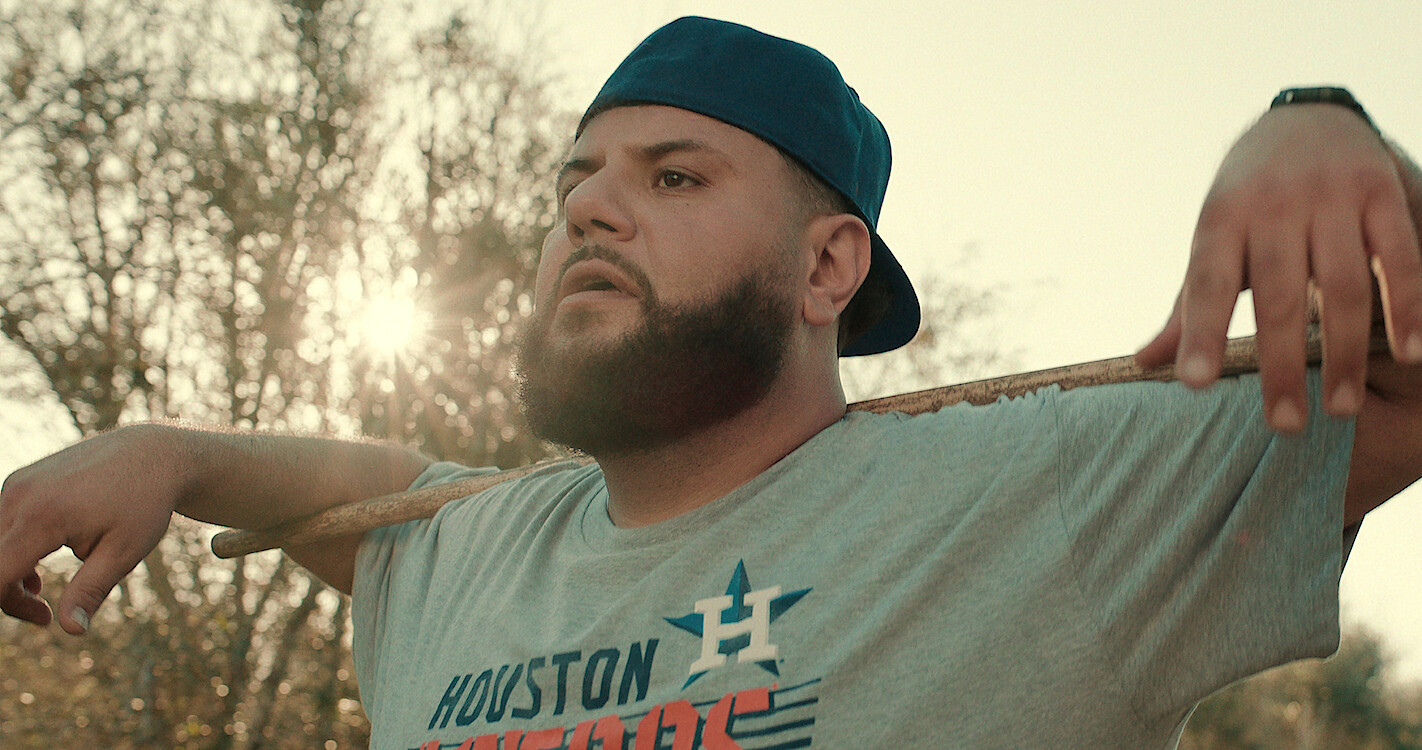



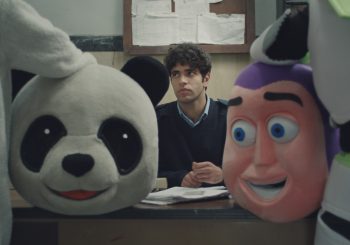
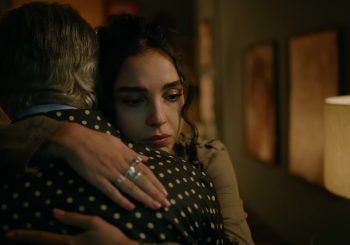

Comment (1)
[…] similar to Mo, a Netflix series played by Mohamed Amer ‘Mo’ – who also appears as Ramy’s best friend in the show – does a remarkable job at accenting the […]